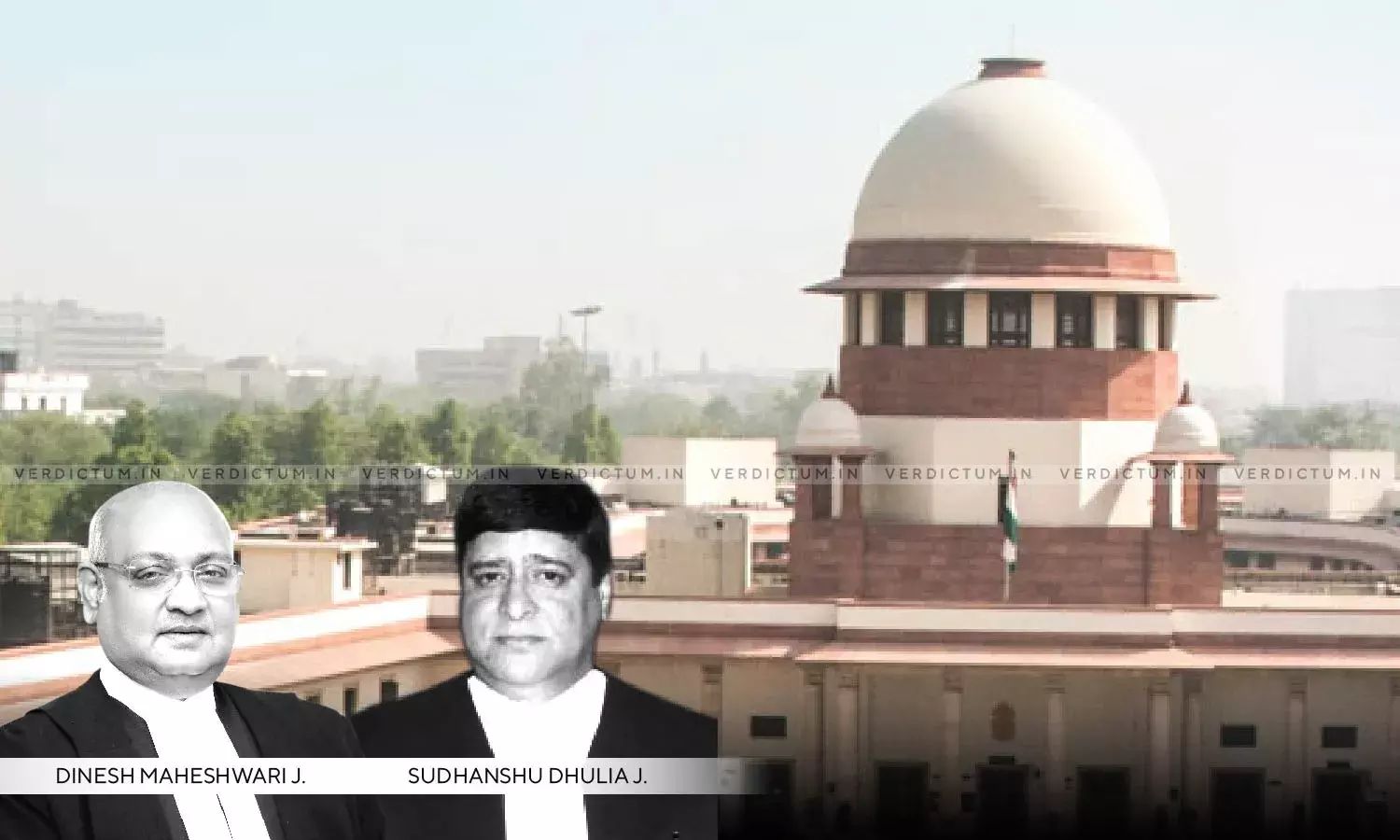Prayer For Reference To Arbitration Cannot Be Granted If Substantive Reliefs Claimed In Suits Fall Outside Arbitration Clause: SC

While deciding on the question of invocation of arbitration, the Supreme Court yesterday clarified that even if the original license agreement is said to be the genesis of the contractual relations of the Appellant and the Respondent, the same does not ipso facto lead to the availability of the arbitration agreement in relation to the dispute in question, which emanates from the tripartite agreement and which cannot be determined without reference to the said tripartite agreement and without involving all the parties thereto.
Noticing non-existence of arbitration agreement in relation to the entire subject-matter of the suit, a Two Judge Bench of Justice Dinesh Maheshwari and Justice Sudhanshu Dhulia observed that "when the substantive reliefs claimed in the suits fall outside the arbitration clause in the original license agreement, then prayer of the present Appellant for reference to arbitration under Section 8 of the Arbitration and Conciliation Act, 1996 cannot be granted".
Advocate Nikhil Goel appeared for the Appellant and Advocate Dushyant Parashar appeared for the Respondent.
The facts of the case are that, in the year 2005, the Appellant entered into two license agreements with the first Respondent and its sister concern (twelfth Respondent) for licensing the operation of two manufacturing units of the Appellant. Both agreements were of the same nature and were executed for a term of 7 years. On the same date, a supplementary agreement was also executed as per which the Appellant requested some financial assistance from Respondent discharging statutory dues. Although the Respondent advanced a sum of Rs. 5.30 Crores, but mortgaged the three licensed manufacturing units in order to secure the ad hoc advance. Later, a tripartite agreement was entered into between the parties for restricting the transfer of title deeds of the land of Appellant during the term of license agreements.
The dispute in the present matter arose after the Respondent invoked clause 3 of the original license agreement and called upon the Appellant to extend the term of the license agreement by a further period of 84 months. This was denied by the Appellant and resultantly, the Respondent on the date of completion of tenure of the original license agreement, did not hand over possession and instead, declared its intention to continue with possession. Accordingly, the Appellant issued notice to Respondent claiming recovery of possession of the manufacturing units. Since the attempts to resolve the dispute failed, the Appellant served notice on Respondent under Section 21 of the Act of 1996 invoking the provision for arbitration. Thereafter, an application was preferred by the Appellant under Section 8 of the Act of 1996 in the said commercial civil suit for reference of the dispute to arbitration, which was rejected by the Commercial Court holding that there was no arbitration clause in the tripartite agreement. This decision of Commercial Court was upheld by the High Court. Hence, present appeal.
After considering the submissions, the Apex Court found that except for the principal agreement, none of the other agreements contained any arbitration clause, even if they related to the same property and also involved the Appellant and the Respondent.
Further, the Apex Court clarified that later transactions involved other parties too like the tripartite agreement, whereby the second Respondent bank had sanctioned loan to the first Respondent and then, supplemental to the said tripartite agreement for dealing with the deposit of title deeds.
Thus, “the submissions made by the appellant with reference to the amendment of Section 8 of the Act of 1996 and the later decisions of this Court in interpretation of the amended Section 8 do not inure to the benefit of the appellant. This is for the simple reason that no such conjunction can be provided to the original license agreement dated 07.04.2005 and the tripartite agreement involving the Bank dated 06.07.2006 and 23.01.2008, whereby the arbitration clause could be held applicable to the tripartite agreement too. This is apart from the fact that in the frame of the suit and various other reliefs claimed, involving subsequent purchasers too and the allegations of fraud, the dispute cannot be said to be arbitrable at all”, added the Court.
The Bench therefore clarified that no dispute resolution process, including arbitration, could be undertaken in relation to the subject matter of the suit without reference to the terms of the tripartite agreement and without involving the second Respondent i.e., the bank.
Hence, the Bench dismissed the appeal and concluded that the view taken by the Commercial Court and the High Court in declining the prayer of the Appellant for reference to arbitration cannot be faulted.
Cause Title: Gujarat Composite Limited v. A. Infrastructure Limited and Ors.

